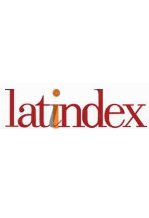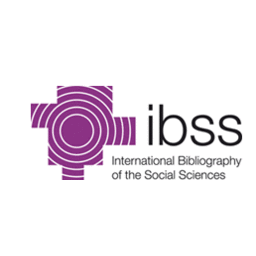Volatilidade Cambial em Tempos de COVID nos BRICS: Modelos ARDL e de Cointegração (FMOLS e DOLS)
Resumen
O objetivo principal deste trabalho é desenvolver uma investigação empírica sobre a ocorrência de uma crise sanitária com dados de morte e casos de COVID e seus possíveis impactos na volatilidade cambial para os BRICS com dados diários de 20 de fevereiro de 2020 até 28 de fevereiro de 2022 utilizando modelos ARDL, MQO modificado e MQO dinâmico. Os resultados apontam que o aumento no número de casos e mortes confirmados está associado a menores níveis de volatilidade cambial indicando que houve ineficiência das políticas monetárias e fiscais no cenário de crise sanitária generalizada em direcionar fluxos de capitais, e como a crise da COVID é global, durante o período analisado ocorreu uma maior estabilidade cambial, ou seja, uma menor volatilidade cambial.
Descargas
Citas
Beckmann, J., & Czudaj, R. L. (2022). Exchange rate expectation, abnormal returns, and the COVID-19 pandemic. Journal of Economic Behavior & Organization, 196, 1-25. DOI: https://doi.org/10.1016/j.jebo.2022.02.002.
Benzid, L., & Chebbi, K. (2020). The impact of COVID-19 on exchange rate volatility: Evidence through GARCH model. Available at SSRN 3612141. DOI: https://doi.org/10.2139/ssrn.3612141.
Coudert, V., Couharde, C., & Mignon, V. (2011). Exchange rate volatility across financial crises. Journal of Banking & Finance, 35(11), 3010-3018. DOI: https://doi.org/10.1016/j.jbankfin.2011.04.003.
Feng, G. F., Yang, H. C., Gong, Q., & Chang, C. P. (2021). What is the exchange rate volatility response to COVID-19 and government interventions? Economic Analysis and Policy, 69, 705-719. DOI: https://doi.org/10.1016/j.eap.2021.01.018.
Fratzscher, M. (2009). What explains global exchange rate movements during the financial crisis?. Journal of International Money and Finance, 28(8), 1390-1407. DOI: https://doi.org/10.1016/j.jimonfin.2009.08.008.
Granger, Clive Wj. (1969) Investigating causal relations by econometric models and cross-spectral methods. Econometrica, Journal of the Econometric Society, p. 424-438. DOI: https://doi.org/10.2307/1912791.
GRANGER, Clive WJ. (1988) Causality, cointegration, and control. Journal of Economic Dynamics and Control, v. 12, n. 2-3, p. 551-559. DOI: https://doi.org/10.1016/0165-1889(88)90055-3.
GRANGER, Clive WJ; NEWBOLD, Paul (1974). Spurious regressions in econometrics. Journal of econometrics, v. 2, n. 2, p. 111-120. DOI: https://doi.org/10.1016/0304-4076(74)90034-7.
Honarmandi, Z., & Zarei, S. (2022). How Does COVID-19 Affect the Volatility Spillover Between the Exchange Rate and the Export-oriented Businesses in Iran?. Global Business Review, 09721509211060616. DOI: https://doi.org/10.1177/09721509211060616.
Ilzetzki, E., Reinhart, C. M., & Rogoff, K. S. (2020). Will the secular decline in exchange rate and inflation volatility survive COVID-19? (No. w28108). National Bureau of Economic Research. DOI: https://doi.org/10.3386/w28108.
Li, C., Su, Z. W., Yaqoob, T., & Sajid, Y. (2021). COVID-19 and currency market: a comparative analysis of exchange rate movement in China and USA during pandemic. Economic Research-Ekonomska Istraživanja, 1-16. DOI: https://doi.org/10.1080/1331677X.2021.1959368.
Narayan, P. K. (2022). Understanding exchange rate shocks during COVID-19. Finance Research Letters, 45, 102181. DOI: https://doi.org/10.1016/j.frl.2021.102181.
Omrane, W. B., & Savaşer, T. (2017). Exchange rate volatility response to macroeconomic news during the global financial crisis. International Review of Financial Analysis, 52, 130-143. DOI: https://doi.org/10.1016/j.irfa.2017.05.006.
Pesaran, H.; Schin, Y. (1999) An autoregressive distributed lag modelling approach to cointegration analysis, Econometrics and Economic Theory in the 20th Century: The Ragnar Frisch Centennial Symposium, Strom S (ed.). Cambridge University Press: Cambridge.
Pesaran, H.; Schin, Y.; Smith, R.J. (2001) “Bounds testing approaches to the analysis of level relationship”, Journal of Applied Econometrics, n. 16. V. 3, p. 289-326. DOI: https://doi.org/10.1002/jae.616.
SAIKKONEN, Pentti (1992). Estimation and testing of cointegrated systems by an autoregressive approximation. Econometric theory, v. 8, n. 1, p. 1-27. DOI: https://doi.org/10.1017/S0266466600010720.
STOCK, James H.; WATSON, Mark W (1993). A simple estimator of cointegrating vectors in higher order integrated systems. Econometrica: journal of the Econometric Society, p. 783-820. DOI: https://doi.org/10.2307/2951763.
Descargas
Publicado
Cómo citar
Número
Sección
Licencia
Derechos de autor 2024 Valdecy Caetano

Esta obra está bajo una licencia internacional Creative Commons Atribución-NoComercial 4.0.
Los derechos de autor de los artículos publicados en Revista de Economia Mackenzie pertenecen a los autores, los cuales otorgan a la Universidade Presbiteriana Mackenzie los derechos exclusivos para publicar el contenido. La reproducción total o parcial está prohibida sin la debida autorización del Comité Editorial, excepto cuando se haya autorizado previamente.










